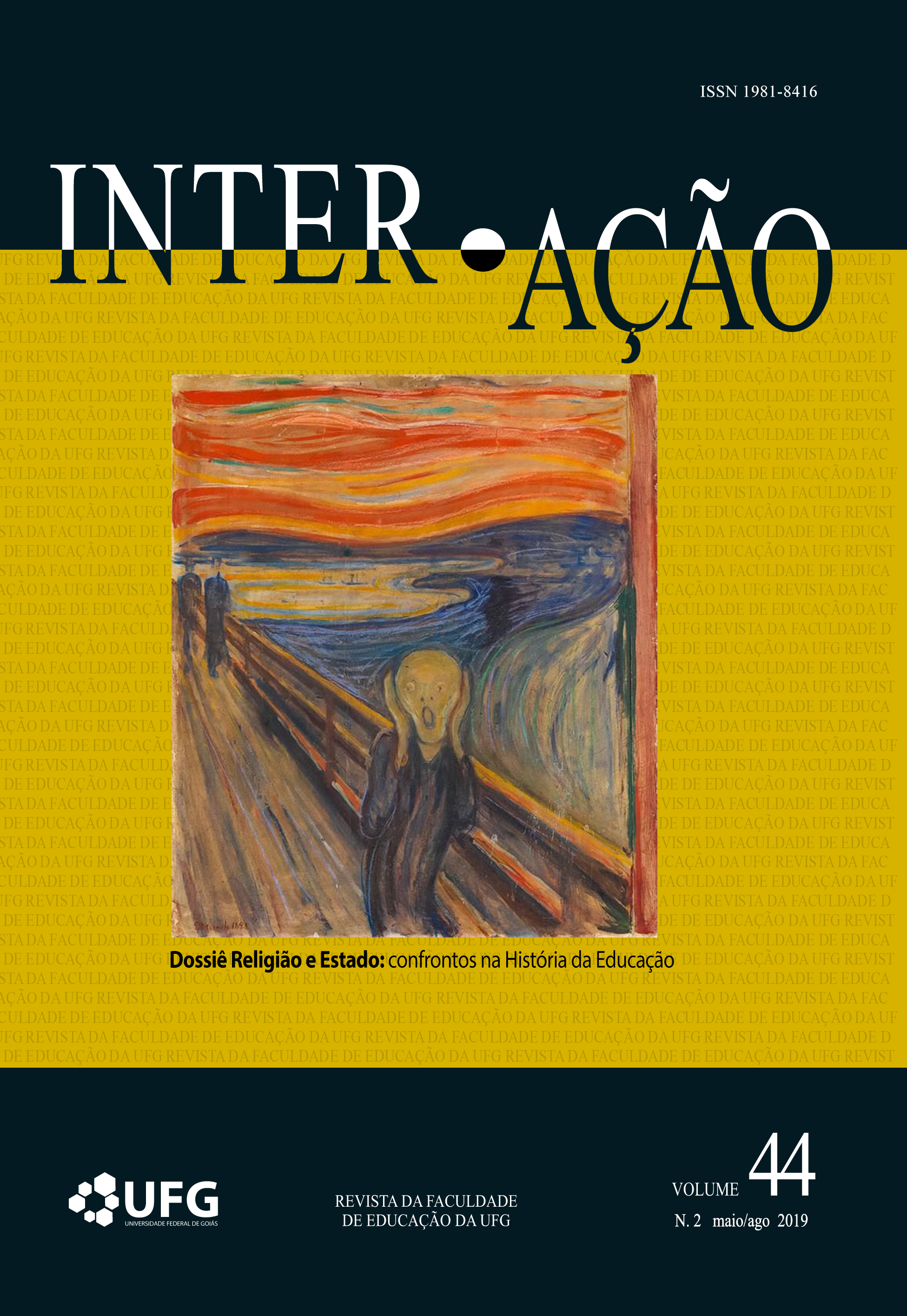A LAICIDADE NO PENSAMENTO DE TRÊS MULHERES DO INÍCIO DO SÉCULO XX: MIRADAS FEMINISTAS SOBRE O TEMA NA AMÉRICA LATINA
DOI:
https://doi.org/10.5216/ia.v44i2.56927Abstract
This article seeks to analyze the debates around the theme of education, State and Church, in the Latin American context, in the first decades of the twentieth century, based on the discourses produced by three intellectuals who fomented a discussion about the secularity of teaching. They are: the Brazilian Maria Lacerda de Moura, the Argentine Carolina Muzilli and the Uruguayan Paulina Luisi. For the development of the analyzes are used sources of authorship of the three intellectuals, produced in different contexts, such as: books, periodicals and communications presented in Congresses of the time. The women chosen were at the forefront of controversial initiatives and national and international repercussions related to the education, insertion and emancipation of women. The text is divided into three parts. Initially, a brief discussion of the documentary corpus and on the theoretical issues that anchor the analyzes. Next, the question of secularity is discussed through the context in which such discussions arose, seeking to understand how the issue of secular teaching was linked to other demands. In the sequence, it was necessary to look at the individual trajectories of the chosen intellectuals in order to reflect on the motivations that led them to spread the discourses in favor of secularity in education.
Downloads
Downloads
Published
How to Cite
Issue
Section
License
Inter-Ação uses the Creative Commons Attribution 4.0 License for Open Access Journals (Open Archives Initiative - OAI) as the basis for the transfer of rights. Open access means making documents available on the Internet free of charge, so that users can read, download, copy, distribute, print, search, or link to the full text of documents, process them for indexing, use them as input data for software programs, or use them for any other lawful purpose, without financial, legal, or technical barriers.
Authors publishing in this journal agree to the following conditions:
1) Authors retain copyright and grant the journal the right of first publication, with the work simultaneously licensed under the Creative Commons Attribution License, which permits redistribution of the work with attribution and first publication in this journal.
2) Authors are permitted to enter into additional, separate agreements for non-exclusive distribution of the version of the work published in this journal (e.g., for publication in an institutional repository or as a book chapter), with attribution and first publication in this journal.
3) Authors are permitted and encouraged to publish and distribute their work online (e.g. in institutional repositories or on their home page) at any time before or during the editorial process, as this may generate productive changes as well as increase the impact and citation of the published work.















